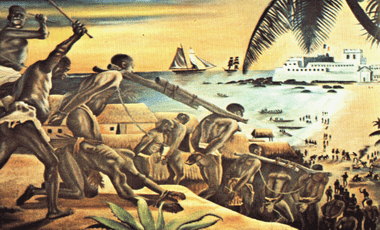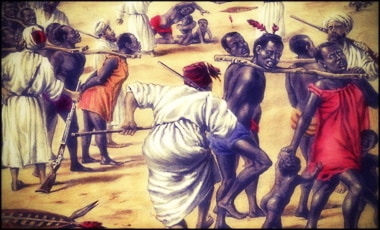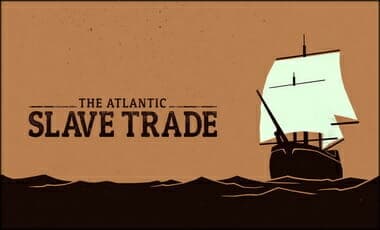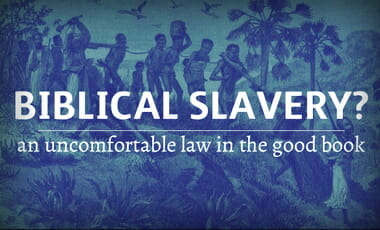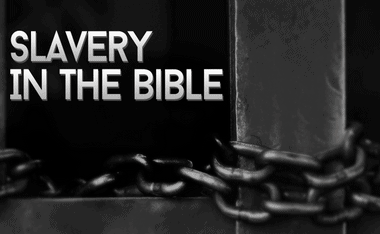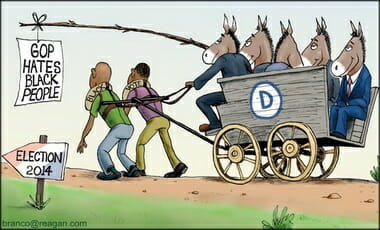2. The Bible Often Condemns the Means by Which Slaves Were Taken as Slaves.
In the first century, slavery wasn’t race-based like it was in the American South. People were taken as slaves through a number of means: warfare, piracy, highway robbery, infant exposure, and punishment of criminals. In all of this, there was always prevalent the issue of kidnapping people in order to enslave them. What does the Bible say about kidnapping?
In 1 Timothy 1:10, the apostle Paul says that kidnapping or man-stealing is against God’s law. Most interpreters recognize that this man-stealing was for the purpose of slavery. That is why the ESV has it as “enslavers” and the NIV as “slave traders.”Certainly, the background for Paul’s command is the Old Testament law:
Exodus 21:16 “Whoever steals a man and sells him, and anyone found in possession of him, shall be put to death” (ESV).
Who is to be put to death? The one who takes the man and the one who holds him. This is significant because some people have made the case that while the Bible does condemn slave-trading it does not condemn slave-holding (e.g., Douglas Wilson, Black and Tan, 56). If this view were correct, there would not necessarily have been any moral problem with Christians owning slaves in the American South during and before the Civil War.
But Exodus 21:16 says that both the kidnapping and the enslavement are punishable by death. And this is the background for Paul’s own thinking about the matter in 1 Timothy. The entire system of Southern slavery was based on kidnapping people from Africa. The slave-traders stuffed these Africans into ship holds where they suffered and died by the thousands. That slave-trade was an abomination. And it is fallacious to suggest that the slave-holders are not morally implicated in the slave-trade. You cannot defend those who participated in the slave trade, nor can you defend those slave owners who created the market for man-stealing.
So the Bible definitely condemns the means by which slaves were taken as slaves—especially kidnapping, which was punishable by death.
3. The New Testament forbids Christians from coercive violence against slaves.
Ephesians 6:9 “Masters, do the same to them, and stop your threatening, knowing that he who is both their Master and yours is in heaven, and that there is no partiality with him.”
Yes, there were Christian slave owners in the New Testament. But no, they were not allowed to threaten their slaves with violence. And obviously, if they weren’t allowed to threaten with violence, they weren’t allowed to actually do violence against their slaves. It may have been allowable under Roman law for a master to abuse or even kill his slave. But it was not allowable under God’s law to do such things. You might call that slavery in some sense, but what kind of slavery is it that doesn’t allow the master to coerce his slave through violence? It’s certainly not Roman slavery. It’s certainly not like slavery in the American South. This is something so different one wonders if you can call it slavery at all.
4. The New Testament commands Christians to treat slaves like brothers.
When Paul wrote to the slave-owner Philemon about his run-away slave Onesimus, Paul told Philemon to receive Onesimus “no longer as a slave, but more than a slave, a beloved brother… If then you regard me a partner, accept him as you would me” (Phlm 16-17).
What kind of slavery is it that tells a master to give up threatening and to treat his slaves like his brother? Again, it’s not Roman slavery. It’s nothing like slavery in the American South. So the Bible isn’t endorsing either one of those. This is something else entirely. And that is why slavery cannot continue where the Kingdom of God holds sway. The Bible completely undermines all the defining features of slavery: kidnapping, coercive violence, treating people like property rather like brothers created in the image of God.
[….]
7. The Bible condemns racism.
As I mentioned earlier, slavery in the New Testament was not race-based. But slavery in the American South was. The Bible forbids treating someone else as less than human because of their race. God created man in his own image—all men—not just white ones or black ones or red ones or yellow ones. Because of that, every person—not just some people—every person has inherent dignity and worth as image-bearers of almighty God. For this reason, the diversity of races is not an evil to be abolished but a glory to be celebrated. God intends to gather worshipers for Himself from every “tribe and tongue and people and nation” (Rev 5:9). And we know that in Christ “there is no distinction between Greek and Jew, circumcised and uncircumcised, barbarian, Scythian, slave and freeman, but Christ is all, and in all” (Col 3:11).
So no, the Bible does not endorse slavery nor the evils inherent in slavery. On the contrary, it abolishes them in the name of Jesus. The gospel of Jesus Christ does not command us to take up arms in violent revolution to abolish slavery. It does, however, introduce a new kingdom in the world that will one day overthrow all unjust authorities. And we are called as the church to be an outpost of that coming kingdom. And wherever the church goes, slavery must flee because the Kingdom of Christ will not abide unjust authorities.
When the critics assail scripture, they often make confident assertions about things they know very little about (1 Tim. 1:7). In this case, when they rail against the Bible’s alleged endorsement of slavery, they are misrepresenting what the Bible actually teaches. Every word of God is pure and good and wise and right and good for us–including what it says to us about those under the yoke.
“Your word is very pure,
Therefore Your servant loves it.” –Psalm 119:140
